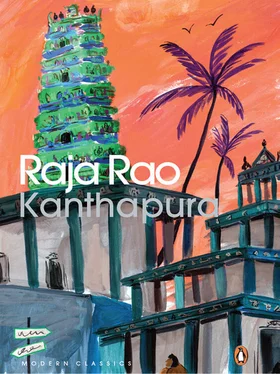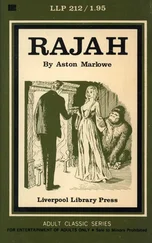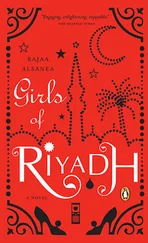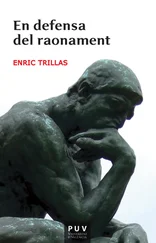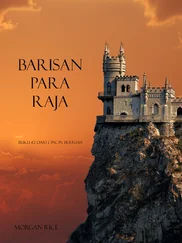Raja Rao - Kanthapura
Здесь есть возможность читать онлайн «Raja Rao - Kanthapura» весь текст электронной книги совершенно бесплатно (целиком полную версию без сокращений). В некоторых случаях можно слушать аудио, скачать через торрент в формате fb2 и присутствует краткое содержание. Год выпуска: 2014, Издательство: Penguin, Жанр: Классическая проза, на английском языке. Описание произведения, (предисловие) а так же отзывы посетителей доступны на портале библиотеки ЛибКат.
- Название:Kanthapura
- Автор:
- Издательство:Penguin
- Жанр:
- Год:2014
- ISBN:нет данных
- Рейтинг книги:3 / 5. Голосов: 1
-
Избранное:Добавить в избранное
- Отзывы:
-
Ваша оценка:
- 60
- 1
- 2
- 3
- 4
- 5
Kanthapura: краткое содержание, описание и аннотация
Предлагаем к чтению аннотацию, описание, краткое содержание или предисловие (зависит от того, что написал сам автор книги «Kanthapura»). Если вы не нашли необходимую информацию о книге — напишите в комментариях, мы постараемся отыскать её.
Kanthapura — читать онлайн бесплатно полную книгу (весь текст) целиком
Ниже представлен текст книги, разбитый по страницам. Система сохранения места последней прочитанной страницы, позволяет с удобством читать онлайн бесплатно книгу «Kanthapura», без необходимости каждый раз заново искать на чём Вы остановились. Поставьте закладку, и сможете в любой момент перейти на страницу, на которой закончили чтение.
Интервал:
Закладка:
And from the day she saw this, as if in a vision, she would neither sleep nor sit, and she spoke secretly of it to Post-office-house Chinnamma, who was Maddur Coffee-planter Venkatanarayana’s cousin and Post-office Chinnamma said, ‘Of course I shall speak to Venku when he comes here next,’ and she spoke of it to Puttamma whose sister was Coffee-planter Venkatanarayana’s second wife. And the whisper went from house to house that Moorthy was to be married to the second daughter of Venkatanarayana. ‘Why,’ said Temple Lakshamma, ‘why, even the marriage day has been fixed — it will be in the dark half of the Sravan month,’ and they all said that soon the village would begin to prepare vermicelli and rice-cakes and ha-ppalams, and they all said, ‘This will be a fine marriage and we shall feast as we have never done — think of it, a coffee planter!’
But Waterfall Venkamma knew better. This good-for-nothing fellow, who could not even pass an examination and who had now taken to this Pariah business — why, he could beg, cringe and prostrate himself before the coffee planter but he would not even have the dirt out the body of his second daughter.
‘Ah, well,’ she said, ‘if you want to know, I shall go straight to Narsamma herself and find it out’; and straight she went, her sari falling down her shaven head, and she walked fast, and when she came to Moorthy’s house she planted herself straight before his mother and cried, ‘Narsamma, I have come to ask you something. You know you said you did not want my daughter for your son. I am glad of it now and I say to myself, thank heaven I didn’t tie my daughter to the neck of a Pariah-mixer. Ah, well! I have horoscopes now from Bangalore and Mysore — with real B.A.s and M.A.s, and you will see a decent assistant commissioner take my daughter in marriage. But what I have come for is this: Tell me, Narsamma, it seems your son wants to marry Coffee-planter Venkatanarayana’s daughter. He will do nothing of the kind. God has not given me a tongue for nothing. And the first time your honoured guests come out after the marriage papers are drawn, here shall I be in this corner, and I shall tumble upon them, I a shaven widow, and I shall offer them a jolly good blessing ceremony in the choicest of words. Do you hear that, Narsamma? Well, let him take care, Moorthy. And our community will not be corrupted by such dirt-gobbling curs. Pariah! Pariah!’ She spat at the door and walked away, to the consternation of Narsamma, and the whole village said Venkamma was not Waterfall Venkamma for nothing, and that Narsamma should not take it to heart. And when Narsamma saw her at the river the next day, Venkamma was as jolly as ever and she said she had a bad tongue and that one day she would ask Carpenter Kenchavya to saw it out, and Narsamma said, ‘Oh, it does not matter, sister,’ and they all talked together happily and they came back home, their baskets on their heads, content.
But on this particular morning Venkamma was beginning to boil again. As Narsamma came forward, and, placing her basket on the sands, began to unroll her bundle, Venkamma plants herself like a banana-trunk in front of her and cries out:
‘Hè, Narsamma. Do you know what your son is bringing to this village?’
‘What?’ trembles Narsamma.
‘What? It’s for nothing you put forth into the world eleven children, if you do not even know what your very beloved son is always doing. I will tell you what he is doing: he is mixing with the Pariahs like a veritable Mohammedan, and the Swami has sent word through Bhatta to say that the whole of Kanthapura will be excommunicated. Do you hear that? A fine thing, too, it is, you with your broad ash-marks and your queer son and his ways. If he does not stop mixing with the Pariahs, this very hand — do you hear? — this very hand will give him two slaps on his cheeks and one on the buttocks and send him screaming to his friends, the Pariahs. Do you hear? And I have daughters to marry, and so has everybody else. If you have none, so much the worse for you. And we shall stand none of this Pariah affair. If he wants to go and sleep with those Pariah whores, he can do so by all means. But let him not call himself a Brahmin, do you hear? And tell him, the next time I see him in the Brahmin street, he will get a jolly fine marriage-welcome with my broomstick.’
‘Oh, calm yourself, Venkamma!’ says Post-office-house Chinnamma, the second daughter-in-law of the house. ‘After all, it is not for a woman to hold out in such speech. And Bhatta has not said the village is to be excommunicated. It shall be only if we mix with the Pariahs. ’
‘Oh, go away! What do you know of the outside world, you kitchen queen? I know. Bhatta met me yesterday and he told me all about it. The Swami has said that if this Pariah business is not stopped immediately the village will be excommunicated.’
‘When, Venkamma, when?’ trembled Narsamma. ‘Ex-communication!’
‘I told you, it was yesterday. I saw Bhatta. And he told me this. If not, how should I know?’
‘Why, Venkamma,’ says Chinnamma, ‘it was I who told it to you this morning!’
‘Ah, my daughter of daughters, you think the cock only crows because of you, young woman. I listened to you as though I didn’t know of it. But to tell you the truth I knew it long ago. ’
‘Truly, excommunication?’ asks Narsamma. ‘Truly?’ and a tear big as a thumb ran down her pouchy cheeks. ‘No, not my son. No. Never will my son bring dishonour to his family. He has promised me. No dishonour to his family. Never. Never.’ And as she began to unroll her bundle, something came up from her stomach to her throat, and she burst out sobbing. She sat herself down and she began to sob. Meanwhile Rangamma and her mother came along to the river. And they tried to console her. But no. Narsamma went on shivering and sobbing. ‘Oh, Moorthy, you must never do that! Never!’ And Rangamma and young Chinnamma said Moorthy was a fine fellow and he did nothing wrong, and if the Swami wanted to excommunicate him they would go to the city themselves and have the excommunication taken away. But Narsamma would not listen. ‘Oh, Moorthy, if your departed father were alive what would he think of you, my son, my son, my son?. ’ And she hastily entered the river and took a hurried bath, and just wetting her washing, she said she was going home. But Rangamma said, ‘Wait, Aunt, I’m coming with you,’ and they walked by the river-path and over the field-bunds and by the mango grove, and at every step Narsamma cried out that this was a sin and that was a sin, and she began to weep and to beat her breasts; but Rangamma said nothing was the matter and that, when Moorthy came from town, everything would be settled; but Narsamma would have nothing of it. ‘Oh, they’ll excommunicate us — they’ll excommunicate us, the Swami will excommunicate us,’ she said, and she rolled on the floor of her house while Rangamma stood by the door, helpless as a calf.
4
The day dawned over the Ghats, the day rose over the Blue Mountain, and churning through the grey, rapt valleys, swirled up and swam across the whole air. The day rose into the air and with it rose the dust of the morning, and the carts began to creak round the bulging rocks and the coppery peaks, and the sun fell into the river and pierced it to the pebbles, while the carts rolled on and on, fair carts of the Kanthapura fair — fair carts that came from Maddur and Tippur and Santur and Kuppur, with chillies and coconut, rice and ragi, cloth, tamarind, butter and oil, bangles and kumkum, little pictures of Rama and Krishna and Sankara and the Mahatma, little dolls for the youngest, little kites for the elder, and little chess pieces for the old — carts rolled by the Sampur knoll and down into the valley of the Tippur stream, then rose again and groaned round the Kenchamma hill, and going straight into the temple grove, one by one, with lolling bells and muffled bells, with horn-protectors in copper and back-protectors in lace, they all stood there in one moment of fitful peace; ‘Salutations to thee, Kenchamma, goddess supreme,’—and then the yokes began to shake and the bulls began to shiver and move, and when the yokes touched the earth, men came out one by one, travellers that had paid a four-anna bit or an eight-anna bit to sleep upon pungent tamarind and suffocating chillies, travellers who would take the Pappur carts to go to the Pappur mountains, the Sampur carts to go to the Sampur mountains, and some too that would tramp down the passes into the villages by the sea, or hurry on to Kanthapura as our Moorthy did this summer morning, Moorthy with a bundle of khadi on his back and a bundle of books in his arms.
Читать дальшеИнтервал:
Закладка:
Похожие книги на «Kanthapura»
Представляем Вашему вниманию похожие книги на «Kanthapura» списком для выбора. Мы отобрали схожую по названию и смыслу литературу в надежде предоставить читателям больше вариантов отыскать новые, интересные, ещё непрочитанные произведения.
Обсуждение, отзывы о книге «Kanthapura» и просто собственные мнения читателей. Оставьте ваши комментарии, напишите, что Вы думаете о произведении, его смысле или главных героях. Укажите что конкретно понравилось, а что нет, и почему Вы так считаете.
